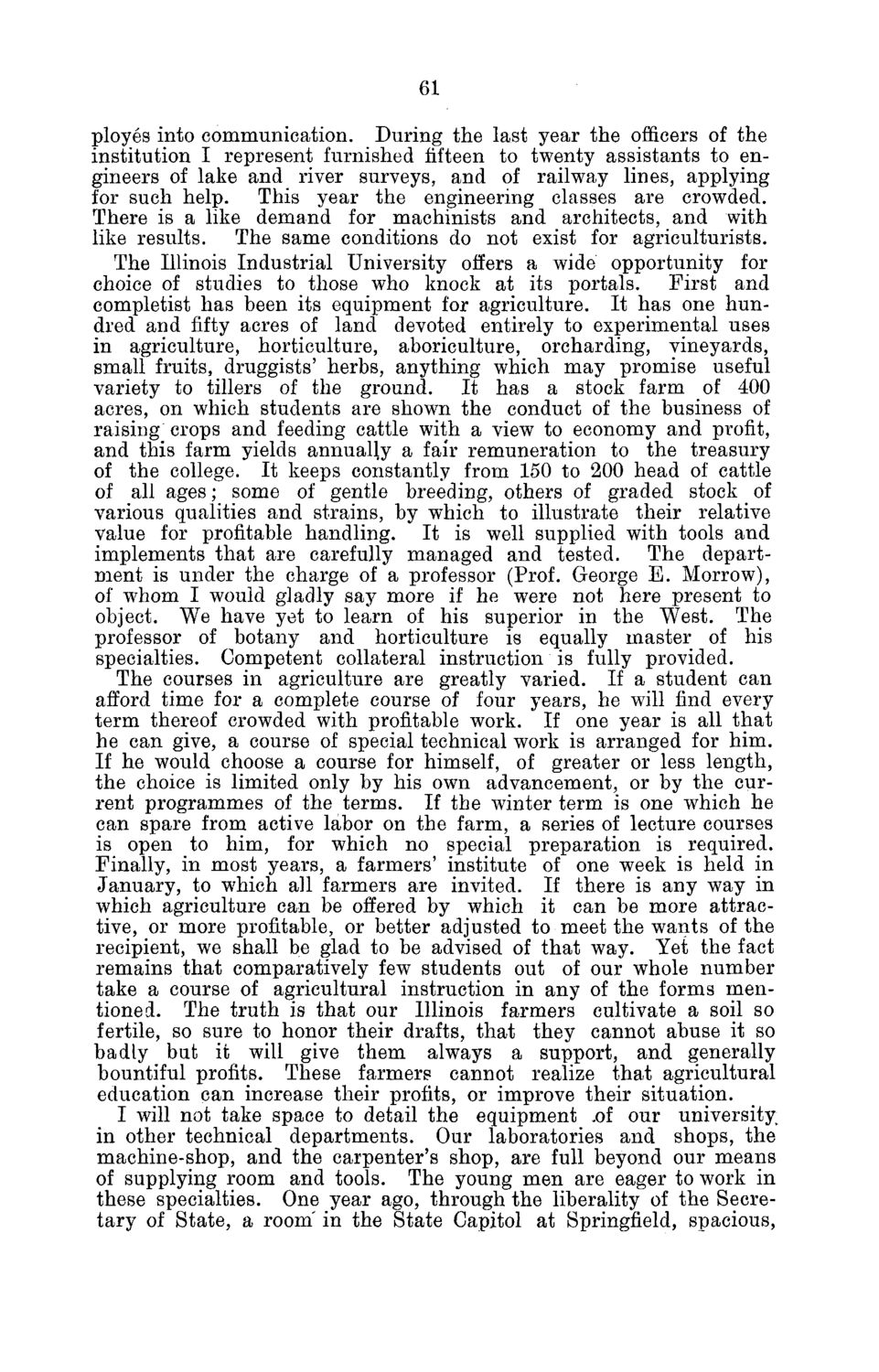| |
| |
Caption: Board of Trustees Minutes - 1882
This is a reduced-resolution page image for fast online browsing.

EXTRACTED TEXT FROM PAGE:
61 ployes into communication. During the last year the officers of the institution I represent furnished fifteen to twenty assistants to engineers of lake and river surveys, and of railway lines, applying for such help. This year the engineering classes are crowded. There is a like demand for machinists and architects, and with like results. The same conditions do not exist for agriculturists. The Illinois Industrial University offers a wide opportunity for choice of studies to those who knock at its portals. First and completist has been its equipment for agriculture. It has one hundred and fifty acres of land devoted entirely to experimental uses in agriculture, horticulture, aboriculture, orcharding, vineyards, small fruits, druggists' herbs, anything which may promise useful variety to tillers of the ground. It has a stock farm of 400 acres, on which students are shown the conduct of the business of raising crops and feeding cattle with a view to economy and profit, and this farm yields annually a fair remuneration to the treasury of the college. It keeps constantly from 150 to 200 head of cattle of all ages; some of gentle breeding, others of graded stock of various qualities and strains, by which to illustrate their relative value for profitable handling. It is well supplied with tools and implements that are carefully managed and tested. The department is under the charge of a professor (Prof. George E. Morrow), of whom I would gladly say more if he were not here present to object. We have yet to learn of his superior in the West. The professor of botany and horticulture is equally master of his specialties. Competent collateral instruction is fully provided. The courses in agriculture are greatly varied. If a student can afford time for a complete course of four years, he will find every term thereof crowded with profitable work. If one year is all that he can give, a course of special technical work is arranged for him. If he would choose a course for himself, of greater or less length, the choice is limited only by his own advancement, or by the current programmes of the terms. If the winter term is one which he can spare from active labor on the farm, a series of lecture courses is open to him, for which no special preparation is required. Finally, in most years, a farmers' institute of one week is held in January, to w7hich all farmers are invited. If there is any way in which agriculture can be offered by which it can be more attractive, or more profitable, or better adjusted to meet the wants of the recipient, we shall be glad to be advised of that way. Yet the fact remains that comparatively few students out of our whole number take a course of agricultural instruction in any of the forms mentioned. The truth is that our Illinois farmers cultivate a soil so fertile, so sure to honor their drafts, that they cannot abuse it so badly but it will give them always a support, and generally bountiful profits. These farmers cannot realize that agricultural education can increase their profits, or improve their situation. I will not take space to detail the equipment .of our university, in other technical departments. Our laboratories and shops, the machine-shop, and the carpenter's shop, are full beyond our means of supplying room and tools. The young men are eager to work in these specialties. One year ago, through the liberality of the Secretary of State, a room'in the State Capitol at Springfield, spacious,
| |